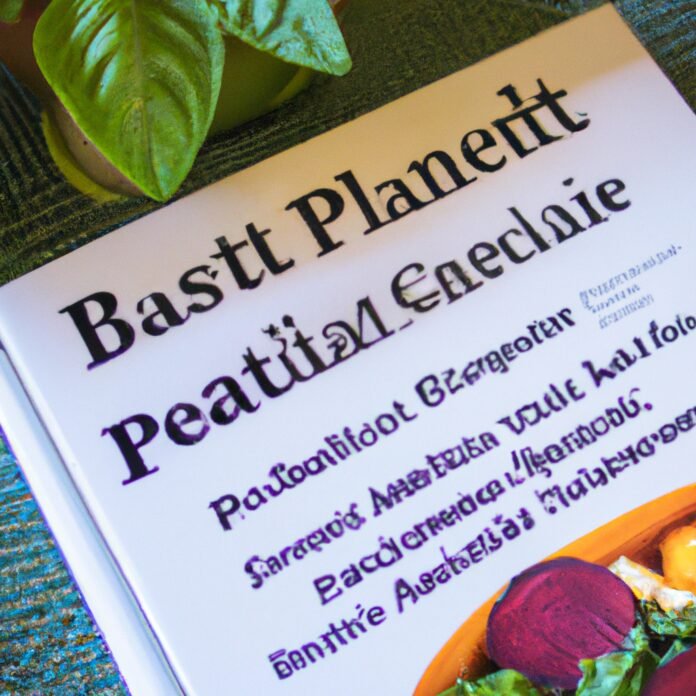The vegan lifestyle is becoming increasingly popular in the West as more and more people are recognizing the many health and environmental benefits that come with reducing animal products in our diet. Plant-based nutrition offers a healthy and kind way to eat, and embracing this lifestyle can lead to greater physical and mental wellbeing. Learn more about the vegan lifestyle and the advantages of plant-based nutrition right here.
1. Understanding the Plant-Based Diet: An Introduction
Welcome to the world of plant-based diets! Before you dive in, it is important to understand what it really means to be plant-based. A plant-based diet is an eating style that focuses on plant-derived foods such as fruits, vegetables, grains, nuts, and seeds, with fewer animal products such as meat, dairy, and eggs.
Benefits of Eating Plant-Based
- Plant-based diets provide a variety of health benefits. Studies have shown that compared to diets that include animal products, plant-based diets can lower your risk for developing chronic diseases such as heart disease, diabetes, obesity, and many forms of cancer.
- Plant-based diets are rich in dietary fiber and other essential nutrients such as antioxidants, vitamins, minerals, and phytochemicals. These important nutrients help support a healthy immune system and reduce inflammation.
- Plant-based diets are also associated with improved mood and mental wellbeing due to the positive effect that wholesome plant foods have on energy levels and mood.
- Plant-based diets are also great for the environment. Eating plant-based means decreasing your consumption of animal products, which requires fewer resources to produce and produces much less pollution.
Types of Plant-Based Diets
There are many different types of plant-based diets. Some of the most popular include the vegan diet, which avoids all animal products; the vegetarian diet, which includes dairy, eggs, and sometimes honey; the flexitarian diet, which sometimes includes small amounts of meat; and the pescatarian diet, which includes fish and seafood.
Making Plant-Based Eating Work for You
Whether you’re a beginner or a practiced plant-based eater, there are some tips that can help you make plant-based eating work for you. Start meal planning ahead of time to make sure you’re ready with nutritious meals for the week. And if cooking isn’t your thing, there are plenty of delicious plant-based convenience meals available. Many restaurants offer vegan and vegetarian options, too.
Don’t forget to have fun experimenting with new recipes and flavors – and most importantly, enjoy the deliciousness of plant-based eating!

2. Exploring the Benefits of a Vegan Lifestyle
Adopting the vegan lifestyle has never been easier, and the rewards are numerous. As the wave of health consciousness spreads, more and more people are exploring the profound benefits of veganism. Here are just a few:
- Improved nutrition: A vegan diet is rich in vitamins, minerals, fiber, and antioxidants for optimum health. Studies have found that vegans have lower levels of cholesterol, less weight-related risks, and better overall immune system health than non-vegan eaters.
- Animal welfare: Removing animal products from one’s diet can help reduce animal suffering. Going vegan eliminates the need for industrial animal farming, which is associated with pollution, cruelty, and environmental degradation.
- Greater sustainability: Plant-based diets have a lighter environmental footprint than diets that include animal products. According to the UN, animal agriculture is one of the biggest contributors to the climate crisis. Eating plant-based can help minimize the number of greenhouse gases emitted into the atmosphere.
- Financial savings: Meat, dairy, and eggs are often more expensive than produce. Adopting a vegan diet is a great way to save money at the grocery store, making it a great option for anyone on a budget.
In many ways, veganism is a departure from the status quo. It can be a challenge to give up cherished food habits and lifestyle choices. But for those seeking optimal health and greater sustainability, the rewards of veganism are plentiful.
Veganism is more than just a trendy diet– it’s an opportunity to live a healthier, more ethical, and more sustainable life. By exploring the many benefits of veganism, more and more people are choosing to go vegan and making it part of their lifestyle.
3. Developing Your Plant-Based Diet Plan
Having a plant-based diet plan is essential to achieving a balanced and healthy diet. It is important to focus on whole foods like fruits, vegetables, grains, and legumes. Here are some tips on how to develop your own plant-based diet plan that will leave you feeling energized and full of life:
- Focus on Variety: Choose a variety of plant-based foods to ensure you get a good balance of vitamins, minerals, and other nutrients. Eating a variety of plant-based foods will help you to get the full range of benefits from a plant-based diet.
Include all food groups in your plant-based diet plan. Try to include at least one whole grain, one legume, one fruit, one vegetable, and some nuts and seeds each day. Additionally, add in some dairy alternatives like soy, nuts, and grains for calcium and healthy fats.
- Choose Your Favourites: Pick the plant-based foods that you enjoy eating, and develop your own recipes. You don’t have to limit yourself to recipes from cookbooks; use your creativity to make a dish that is both healthy and enjoyable.
Be sure to include staple plant-based foods in your meal plan. Foods like quinoa, brown rice, wild rice, oats and other grains are perfect base ingredients. Legumes like beans, peas, and lentils provide a good source of protein and fiber, so try to include them in your meal plan too.
- Eat Seasonally: Eating seasonally can keep your diet interesting, and also makes it easier to access fresh and local produce. Eating seasonally helps to reduce the environmental footprint of what you eat, and can also save you money.
Once you have your plant-based diet plan, make sure you stick to it. By eating a balanced mix of plant-based foods, you can fuel your body with the essential nutrients it needs. A plant-based diet is a great way to stay healthy and vibrant for years to come!
4. Sustaining a Plant-Based Diet for the Long-Term
A plant-based diet can be a great way to reap the health benefits that come with it, such as a lowered risk for certain chronic diseases. If you’re serious about going plant-based and optimizing your health long-term, there are some things to keep in mind to ensure you both thrive and can sustain your diet for the long haul:
1. Eat Whole Foods – Focus your diet around whole plant foods like fruits, vegetables, nuts, seeds, legumes, and whole grains. These foods are full of fiber and nutrients that are essential for good health. Avoid processed plant-based foods like imitation meats and cheeses, veggie burgers, and oil-based dressings.
2. Experiment with Different Preparation Methods – Eating the same fruits and veggies over and over again is one of the biggest complaints of vegans and vegetarians. Luckily, there are many ways to prepare plant foods so you can switch up your meals. Try roasting, boiling, stir-frying, and steaming different veggies to add variety to your diet. Experiment with different spices and herbs, too.
3. Prioritize Nutrition – Be sure to keep a close eye on your micronutrient intake. Plant-based foods can be harder to digest than other foods, causing them to be less nutrient-dense. To ensure you are meeting your nutritional needs, consider supplementing with vitamins B12 and D3.
4. Include Intuitive Eating – Remember to listen to your body and pay attention to hunger and fullness cues. This can prevent overindulging, overeating, and unnecessary cravings. Include some flexibility in your diet by allowing yourself to have the occasional treat if you are craving it.
5. Shop Smart – Once you become more familiar with the plant-based lifestyle, create a grocery list of your staple plant-based items. Look for bargains and buy seasonal produce as much as possible. Try to buy most of your food from local sources, and shop at bulk stores to save money on things like oats, nuts, and dried fruits.
By keeping our bodies and the environment in mind, embracing a vegan lifestyle is an important step in improving our well-being and the sustainability of our planet. Although it may take a bit of patience and adjustment, slowly transitioning to a plant-based diet is a life choice that is beneficial in both the short and long term. As we become more conscious of our dietary decisions, may we take greater care of ourselves, each other, and the world around us.

